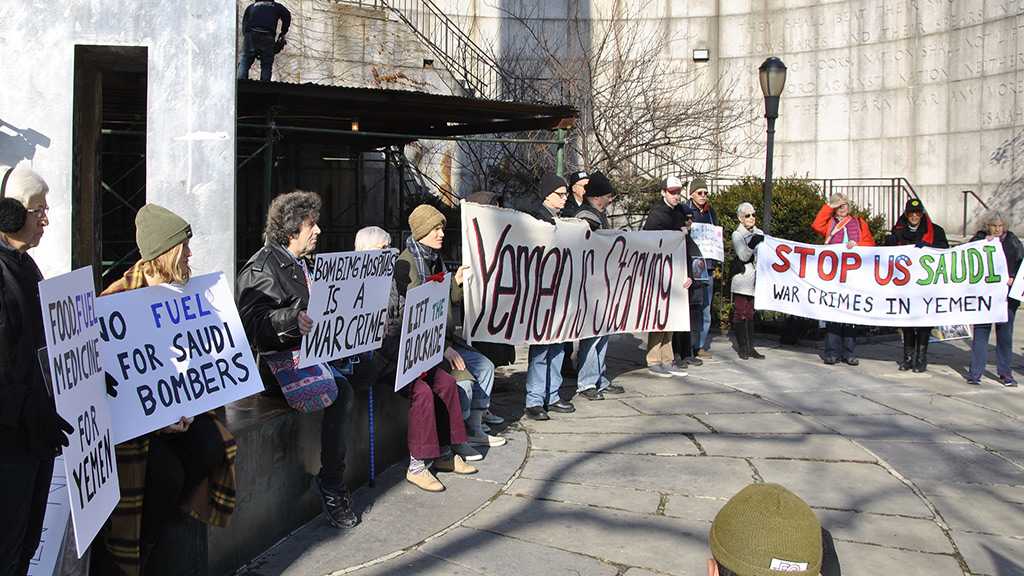
Time for a Full US Withdrawal from the Yemen Conflict

Daniel DePetris
On Aug. 3, news streamed out of Yemen of a reported Arab coalition airstrike that struck a fishing market and came dangerously close to a hospital in the country’s large port city of Hodeida. Residents at the scene, including the International Committee of the Red Cross, labeled the assault a horrific and “reprehensible” violation of international humanitarian law.
Unfortunately, events like this—and a subsequent attack days later on a bus which killed dozens of children on their way to school—are nothing new in a war that the United Nations has frequently referred to as "the worst humanitarian crisis" on the planet.
What may come as a surprise to many is that the United States—first during the Obama administration and now under the Trump White House—is at least partly responsible for the calamity that continues to unfold in the Arab world’s poorest nation.
What is just as disturbing is that Washington’s military and political support to the Saudi Arabia-led coalition is a worthless endeavor with little to no benefit for America’s national security interest in the region. Indeed, Washington’s Yemen policy is one more illustration of an ineffective, reactive, and unwise trend toward overextension—the same overextension that the American people have grown tired and disillusioned with after 17 years of US investment in the Middle East.
… Saudi Arabia’s decision to intervene in March 2015 on behalf of the Yemeni government — a decision supported by the Obama administration at the time—was packaged by Riyadh as a quick painless route of a marauding band of revolutionaries from the mountains.
Riyadh’s predictions of an easy victory, however, have proven to be consistently off-the-mark. The country’s most significant military incursion since the 1991 Gulf War has turned into an unmitigated disaster and a significant personal embarrassment for Crown Prince Mohammed bin Salman, the man thought to be the architect of the campaign.
The statistics from Yemen are heartbreaking. Over 22 million Yemenis, approximately 75 percent of the country’s entire population, require some form of international humanitarian assistance to survive.
Over eight million are at risk of famine; 2.4 million have been forced to flee their homes; and the country is at risk of another cholera epidemic. Every UN-facilitated negotiating process over the past three years has failed to get off the ground, and ceasefire initiatives that were supposed to be a prelude to a conflict-ending diplomacy have tended to break down within days.
The US may not be a direct party to the conflict, but it is by no means a blameless bystander either. As of March 2018, the US Air Force has delivered 88 million pounds of fuel to Saudi and Emirati aircraft throughout the Horn of Africa region.
While Pentagon officials may dismiss these operations as routine assistance to an American partner, the mid-air refueling has been instrumental in Riyadh and Abu Dhabi's capacity to continue the bombing campaign. The longer coalition planes are in the air, the more time their pilots have to search for targets and release their payloads.
According to the Yemen Data Project — an organization that catalogues coalition air strikes — approximately one-third of those bombs have landed on a range of non-military targets, from schools and hospitals to marketplaces, bridges, and seaports. Some have even damaged the cranes that are needed to offload the humanitarian cargo that is desperately needed for the long-suffering population.
When asked to explain the reasons for Washington’s support to the Saudi-led coalition, US officials cite the need to aid a strategic partner during a turbulent period. US officials also claim that assistance to the Saudis will be a force multiplier in the war against terrorist groups that have used Yemen as a base of operations for well over a decade.
None of these rationales, however, pass the laugh test. Not only has the war continued in a never-ending cycle of carnage for the Yemeni people, but US intervention in Yemen’s war has afforded Al-Qaeda in the Arabian Peninsula (AQAP) with a major opening…
The lack of authority in certain areas of Yemen has provided AQAP with a golden opportunity to expand its presence, recruit new fighters to its movement, replenish its coffers, and deepen its ties within the anti-Ansarullah forces. AQAP has captured heavy weapons from stocks left behind by feeling Yemeni troops and may have looted as much as $100 million from a branch of Yemen’s central bank.
The terrorist group’s power has increased to such a point that the very same Saudi-led coalition the US supports has opted to pay off Al-Qaeda fighters for their tactical withdrawal. Pro-government militias have even recruited some of these Al-Qaeda fighters into their ranks.
It goes without saying that none of these developments serve US national security interests or meet US counterterrorism objectives. Far from it; picking winners and losers in another Middle Eastern conflict has brought the war no closer to a resolution.
For the Trump administration, there is only one choice in Yemen: Cease all further military support, including mid-air refueling, to a Saudi-led coalition that has committed war crimes on a weekly basis; redouble support for UN mediation efforts by pressuring Riyadh and Abu Dhabi to seriously engage with their Ansarullah opponents during the next round of US-backed peace talks on Sept. 6; and devote its full attention to taking action against the transitional terrorists that have actually attempted to attack the American people in the past.
There is no US national security objective to be served in continuing to intervene in a tertiary conflict with no direct connection to US security and economic prosperity.
The sooner the United States removes itself from the Yemen catastrophe, the better. There are no good sides in this war and Washington should stop convincing itself otherwise.
Source: The Hill, Edited by website team
Comments



